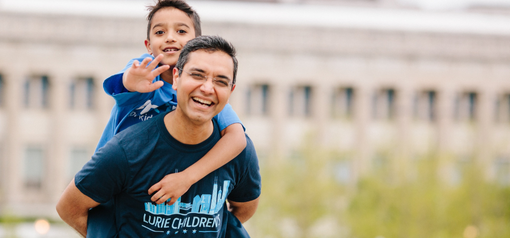Fatherhood Policies and Programming: Language, Narratives, and Landscapes
 This year, the FCHIP team has had the pleasure to work with Evelyn Enriquez, MPS, as part of her capstone project through the University of Arkansas Clinton School of Public Service. Her work with us has helped us further refine our messaging and strategies for expanding PRAMS for Dads. Learn more about her project in her words below.
This year, the FCHIP team has had the pleasure to work with Evelyn Enriquez, MPS, as part of her capstone project through the University of Arkansas Clinton School of Public Service. Her work with us has helped us further refine our messaging and strategies for expanding PRAMS for Dads. Learn more about her project in her words below.
What kind of research have you been involved in?
As part of my Master of Public Service program, I supported the PRAMS for DADS project through comprehensive research, stakeholder mapping, and strategic content development. My responsibilities included analyzing language and policy framing within fatherhood policies, exploring post-election policy landscapes, and synthesizing views on fatherhood across political narratives. I also created a national overview of fatherhood programs, developed outreach materials, and contributed to grant writing efforts, ensuring alignment with funders and their priorities.
How has your research helped inform how you view families and their interaction with systems like health care and public policy?
This project expanded my understanding of the systemic challenges fathers—especially those from underserved communities—face in accessing support. My work revealed how language shapes public perception and policy, and emphasized the importance of inclusive and data-informed advocacy. As someone with a background in social policy and a personal commitment to immigrant communities, I now see family well-being as deeply interconnected with structural access to health, education, and economic stability.
What are your goals in terms of future professional involvement with children and families?
My long-term goal is to pursue a career in research and advocacy that centers the lived experiences of marginalized families, particularly immigrant populations. I aim to shape policy through evidence-based research and equitable program design. Whether through doctoral studies or public sector work, I hope to advance policies that reflect the realities of diverse families and remove systemic barriers to opportunity and care.
Read More

Thoughts from a Thinker in Residence
Read More

FCHIP 2025 Fathers Day Report
Read More

Thriving Grandparenting
Read More
